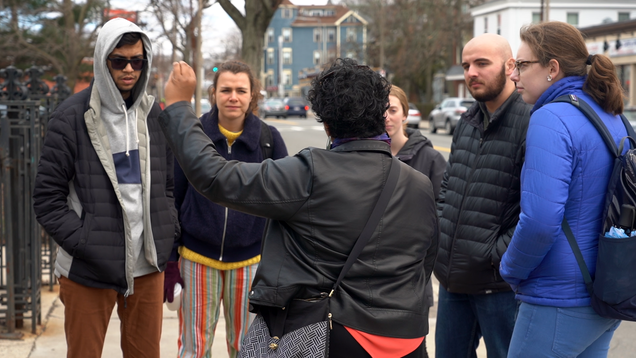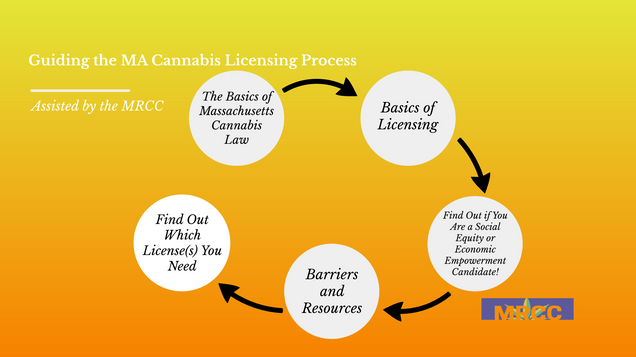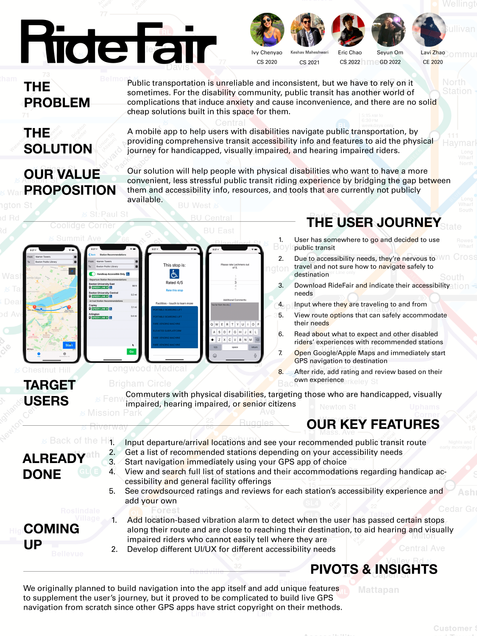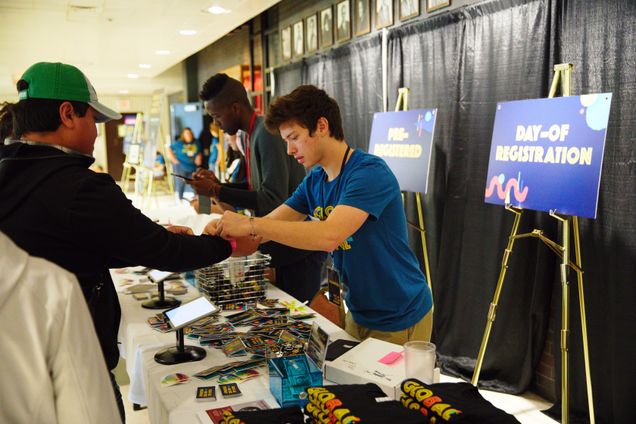Resilience through real-world challenges
An XCC classroom isn’t exactly your typical classroom. If you were to take a pick and waltz into any of the classes mapped across the campus, you’d find a mosaic of experiences carefully tied together to foster an environment where you’re asked to say “creative” before you say hello.
The pieces of that mosaic appear when the ordinary confines of a classroom spill into the streets of the city. It’s in those moments when students tour Boston’s alleys and passages to acquaint themselves with tales that slip through the nooks and crannies of history. Sometimes, those moments appear in the time before a class starts.
Music filters in from personalized Spotify lists while students discuss the best way to finance a large scale global music festival that invites hoards of music aficionados close to the stage. Meanwhile, some have students shuffling in the back, making tik tok videos and collating data points as part of a social media campaign for a social equity cannabis business.

![]()
Going in, XCC student Sebastian Coymat, a senior at Questrom, was interested in learning more about Massachusetts’ recreational cannabis industry. The long-drawn process of getting licensed and financing a business were some of the issues that he was aware of. A guest lecture by Boston Globe’s Dan Adams who has followed the cannabis industry since its inception revealed just how complicated the situation was.
Coymat partnered with other undergrads forming an interdisciplinary team indicative of XCC. His expertise in finance found grounds to interact with his teammates who had backgrounds in political science, public relations and health sciences. Together, these unlikely partners have built an online game in collaboration with Massachusetts Recreational Consumer Council that would help social equity applicants hoping to set up a cannabis store figure out the right pathways.

The birth of a vision
Coymat’s story is just one of many XCC stories that reflect its goals and was sought when the first few chapters of the program were being conceived. “XCC was birthed when the university envisioned the HUB––the new general education program,” said Prof Sandra Deacon Carr, Faculty Director at the Cross-College Challenge. “It was envisioned as the signature experience of the BU HUB in which students after they have had a couple of years of education, would be able to come together and really leverage that.”
“The idea here was to train students to meet the complex needs of the real world and get them ready for their eventual careers,” she said. The interdisciplinary nature of the program was critical. “What we’re hoping to do is bring in different perspectives together to help address complex problems that require more than one perspective,” she said. Designed as a course that offers high-level, project-based classes to juniors and seniors at BU, XCC allows students to broaden their education in ways that they weren’t able to before, she said.
The intersection of varied ideas comes through in the way the program is structured. Project proposals are gathered from a variety of organizations such as 826 Boston, BU Arts Initiative, and the Mayor’s Office of New Urban Mechanics. These community partners collaborate with faculty to apply academic rigor to real-world topics for students.
Meanwhile, upperclassmen from different schools and colleges across BU get sorted into teams where they can learn from each other and bring their own experiences and skills that they have gained at BU into the classroom and the project.
“This is so that they can together look at addressing, researching, solving issues, coming up with solutions, innovating in ways that you can’t do on your own and in ways that often don’t happen within a discipline,” Deacon Carr said.
Deacon Carr, who has worked extensively on team building and organizational behavior, said that students often tend to get specialized within their disciplines. XCC allows them the flexibility that they may need going forward into the world and required in jobs that they’re going to have. “They are prepared to really adapt and work with others who see things quite differently,” she said
This was true for Sophie Richards, a political science major at CAS, who had teamed up with Coymat to build an online game to help social equity applicants. “I know that I couldn’t have spoken with Questrom students anywhere else,” she said. “As a political science major my course revolves so much around the economy but I hardly ever get to explore more of that.” Learning the tricks of the trade through this process of collaboration has helped Richards gain more insight in her major.

XCC also posits a great opportunity for faculty at BU. “Faculty that have been involved in XCC really enjoy the opportunity to collaborate with others from a different school and to really bring two lenses to bear in guiding the students forward,” Deacon Carr said.
Professor James Grady (CFA) and BU Spark Director Ziba Cranmer, who lead the XCC Spark Fellowship Program, have had long careers in design and product innovation.
Much like their students, they’ve been able to put together their expertise and life experiences to help their students develop software that range from providing aides to the disabled to building time management mechanisms to alleviate stress among students.
“I always say that the most difficult aspect about work is the people and not the task itself,” Cranmer said. “We all try to organize people to get to the shared outcomes, steer each other to synchronize.” After matching strengths and tweaking the weaknesses, Cranmer was able to find a conducive balance while collaborating with Grady. “This is the philosophy we try to model in our classroom,” Cranmer said.

Agility through adversity
After crossing the BU bridge, a few blocks ahead lies the location of XCC’s “Cross-Cultural Exploration of Music” section. Here the students spent the entire semester analyzing performance and art to understand the society.
Developing an analytical bent of mind is a primary goal of this course because it helps students understand the nitty-gritty of event management and why an event as big as BU’s Global Music Festival matters. Music often is the string that intertwines the moving pieces in the anatomy of a community.

Noor Mchallah, a student at the College of Arts and Sciences, was supposed to help build campaigns to support outreach to high schools and middle schools in and around Boston. “We made advertisements and posters in different languages because we knew how multilingual schools are and how we often fail to recognize that,” she said.
But outreach becomes a tricky process to conduct in times of a sudden pandemic. “We just weren’t sure how we were going to reach out to these students anymore,” she said. But Mchallah and her team continued to power through and looked at online strategies to make up for real-time connections lost by distance and time.
“XCC courses were not designed to be remote,” Deacon Carr said. “The experiential nature of XCC where people get together to work on problems, interact with their faculty as well as reach out to community partners was by design was an intensive in-person experience,” she said.
Added to the fact is XCC’s extensive cohort of international students. Evangeline Wang, a student at the College of Arts and Sciences, was quarantined in a hotel room in China when she logged in to perform her final piece. She had no materials at hand. Yet when the clock hit 7 pm eastern time, Wang tuned and created art with bare supplies at her disposal during the 2nd BU Puppet Slam.
“I have been so proud of the faculty and the students in their ability to take what was designed as an in-person experience and be creative in how they’ve adapted their courses,” Deacon Carr, who was one of the audience members, said.
Led by Prof. Felice Amato (CFA) and Prof. Jessica Bozek (CAS), Wang and her classmates teamed up with doctoral students to showcase research questions ranging from critical race theory to biochemistry through puppets.
“That is a course that was completely designed to be physical and physically in person, right?” Deacon Carr said. “To put on a show, and adapt everything to a virtual performance was absolutely outstanding given all the challenges.”
Similarly, in a different virtual classroom, Prof. Andy Andres (CGS) and Clinical Assistant Professor Kathryn Webster (SAR), who teach the section “Making of a great baseball player” were quick to jump into action when faced with challenges. The easiest aid when it came to riding this out was the passion displayed by the students.
“Kathryn and I decided that the modern technology employed in the game could be a framework for students to think,” Andres said. The ideas and passion that the students brought by the students surprised him.
“We did an introductory survey to see what their [students] majors were and what their interests and why they’re studying baseball,” he said. “After seeing these 25 students and how passionate they were about the game, how willing they were to engage, I thought to myself–– great! it was going to work out!”

In XCC’s social equity class taught by Prof Seth Blumenthal (CAS) and Prof Ian Mashiter (Questrom), students had been working on a variety of projects to help dissect Massachusetts’ fledgling yet speedily booming cannabis industry. In one of the classes, Blumenthal would take a marker and write “Ethos, Logos, Pathos” on the board.
“Think of the kind of message you want to communicate. Identify which side of the project you want to leverage,” Blumenthal said. Was it ‘logos’, the ‘reason’ supported by facts and figures that argued a reality and held the key to the story? Or was it ‘pathos’, the emotional dimension, found in personal stories of many social equity applicants who struggle to find the capital and support to navigate the industry that had historically incarcerated them and destroyed many families?
Perhaps it was the ‘ethos’–– the credibility of authorities such as the Cannabis Control Commission that endeavors to regulate an industry against an existing illicit market that poses health risks. “You’ll need all three in different capacities for a successful story,” Blumenthal said.
This wasn’t the first or the last time that the trifecta of reason, emotion, and trust was raised in an XCC classroom. Amato and Bozek, in the “Thinking Through Puppets” section, would urge students to find reason in interpretation. Students would soon start trusting agents that defied the social constructs of what was normal.
“You’re putting up a story that begs the audience to peel it apart and interpret it,” Amato said. “It’s another form of brainstorming where the community is trying to understand what truly concerns them by bringing in their lenses.”
“Theater is a great way of showing community movement–– and you can see that on the faces of the audience,” she said. In many ways, that was the next bigger goal for XCC: continue building a community.
“In addition to their particular section and their faculty, we want students to feel part of the Cross College Challenge community as a whole,” said a smiling Deacon Carr with a glint of hope. “We have different stories and we come from different spaces, be it the puppetry class or the baseball class,” she said. “But there are commonalities that unite us and bring us together as one program.”

XCC has been achieving the birth of a community by expanding its diversity. “We’re trying to get more faculty involved from different schools for diverse experiences.” She said that large scale diversity can also help XCC offer courses that serve the needs of more students.
“We’re striving to get our faculty excited about working with other faculty across the university to deliver something unique and something that can benefit the community but also the faculty themselves in their research,” she said. “We’re very open to ideas and so we’re always looking to add, you know, to the program to the slate of offerings that we have at XCC.”
This article was written by Devyani Chhetri (COM’21), a Master’s in journalism.